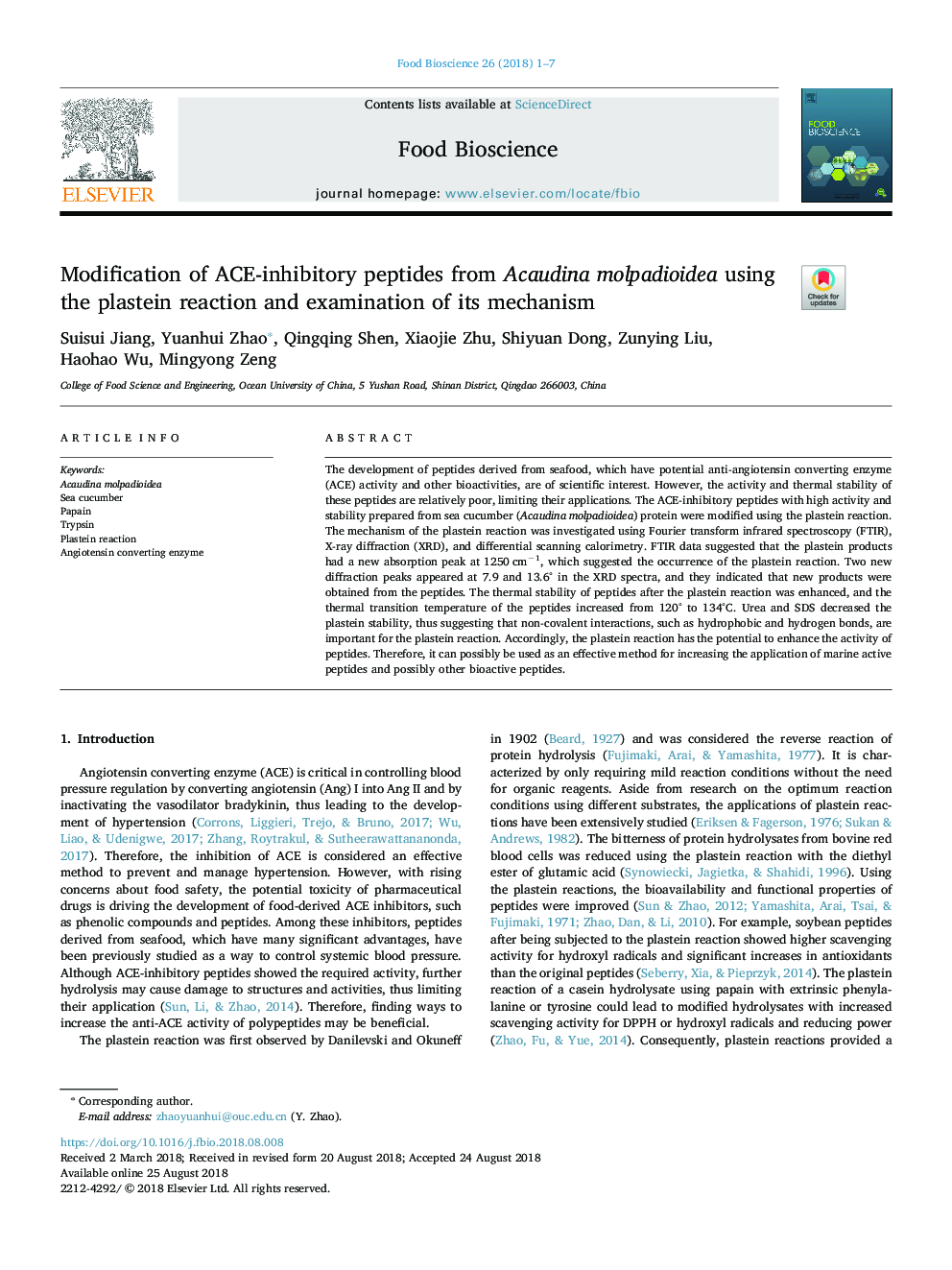| Article ID | Journal | Published Year | Pages | File Type |
|---|---|---|---|---|
| 10148758 | Food Bioscience | 2018 | 7 Pages |
Abstract
The development of peptides derived from seafood, which have potential anti-angiotensin converting enzyme (ACE) activity and other bioactivities, are of scientific interest. However, the activity and thermal stability of these peptides are relatively poor, limiting their applications. The ACE-inhibitory peptides with high activity and stability prepared from sea cucumber (Acaudina molpadioidea) protein were modified using the plastein reaction. The mechanism of the plastein reaction was investigated using Fourier transform infrared spectroscopy (FTIR), X-ray diffraction (XRD), and differential scanning calorimetry. FTIR data suggested that the plastein products had a new absorption peak at 1250â¯cmâ1, which suggested the occurrence of the plastein reaction. Two new diffraction peaks appeared at 7.9 and 13.6° in the XRD spectra, and they indicated that new products were obtained from the peptides. The thermal stability of peptides after the plastein reaction was enhanced, and the thermal transition temperature of the peptides increased from 120° to 134°C. Urea and SDS decreased the plastein stability, thus suggesting that non-covalent interactions, such as hydrophobic and hydrogen bonds, are important for the plastein reaction. Accordingly, the plastein reaction has the potential to enhance the activity of peptides. Therefore, it can possibly be used as an effective method for increasing the application of marine active peptides and possibly other bioactive peptides.
Related Topics
Physical Sciences and Engineering
Chemical Engineering
Bioengineering
Authors
Suisui Jiang, Yuanhui Zhao, Qingqing Shen, Xiaojie Zhu, Shiyuan Dong, Zunying Liu, Haohao Wu, Mingyong Zeng,
